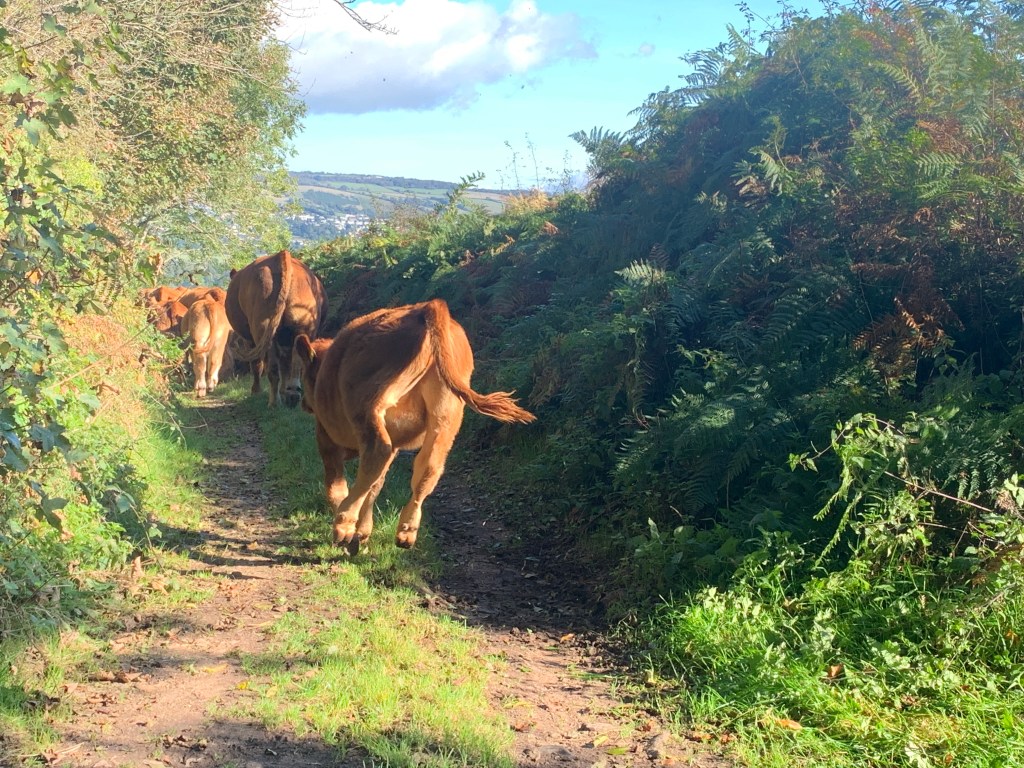
There were talks I found compelling during a recent Global Mental Health Summit. Several times I exclaimed out loud in relief at what I was hearing. The summit speakers came from many different disciplines from psychology professors to meditation practitioners, cold water, exercise and nutrition experts. What came across loud and clear is the changing approach to viewing mental health not only as the crisis of our age, but as an opportunity to educate ourselves in how to be well.
Recovering our health is part of taking a stance which says: I may not be where I want to be in my life, and I may not like what is happening to me, but I can do this for my mental health today. I can take my rucksack to the river and for ten minutes feel the cold water rinse my mind clear of anxiety. I can eat strawberries and cream in a beautiful dish. I can switch off my phone and listen to music. I can sit in wonder.
Sometimes the next best step we can take for our mental health is to do the simplest thing. When all else fails, I open a window. It might not be the long walk I think I should be doing to get fit, but fitness is not so much what we should do but how we actually approach each moment. In becoming fit, whichever way we choose, we shape the raw material of our lives.
The raw material is sensitive to all we have lived through and no matter our view on what has been allocated to us through forces long past our influence or control, we get to have have a say on what we do next. It might not seem like much. It might seem that deliberating how to live your next moment is of little significance given all that we have to suffer and bear.
One summit talk that truly made me pay attention offered the view that leadership is the way you walk through the world. Leadership is the stance you take. Leadership has nothing to do with command or control. Children know this. Horses know this, dogs know this. And cattle, too.
After the session this week, the farmer asked if I would help with the cattle. The yearlings were arriving for the summer, to pasture where some of them were born. I was given a long hazel stick and a spot on a bridle path to block the route. We waited while the lorry unloaded. The cattle were bellowing their heads off and the cattleman confirmed ‘they are a bit lively.’ He added. ‘If they come towards you, just wave your stick and shout.’
As he began unloading, I began to lose my nerve. It already sounded like a stampede. I decided to look for an exit route. If the cattle came towards me I would be waving no stick. No shout would pass my lips. I would be in the woods saving my life.
The cattle came down the ramp, still yelling their heads off. I was still caught up in my story. So this is how my life ends. How poignant to have just spent the morning working gently with horses only to be trampled to death by a different kind of quadruped.
The cattle came for me.
I noticed how small they were. Thirteen chunky red yearlings, lively, exactly as the cattleman said. All shouting, not with intent to do harm, but with glee. Hollering they came down the track and as they turned the corner they kicked their heels like Cossack dancers.
The cows never even saw me. They ran after each other, exuberantly calling in anticipation of spring grass. My near-death story evaporated leaving a trace of ridiculousness as I watched the cattleman encourage the youngsters to follow him down the lane. He was kind to them, used no force, no stick. The yearlings could have been a herd of eight-year-old boys he was cheering to the finish line on a cross country run.
Afterwards I realised I had witnessed something lovely. A homecoming that had been pitched as being stressful yet turned into a lesson in leading, and maybe even living, well. Of course we all had to be prepared and alert had the unloading not gone to plan. When it was over, what struck me, though, was how long the stressful story hung about even when it was unnecessary, like a troll in the woods, waiting for the opportunity to spook.
The deft handling of the herd clearly demonstrated that the stance you take determines the outcome. In reality, this doesn’t mean all will go well. Sometimes a different stance might be called for – waving the stick might have been needed had one of the yearlings bolted- the ability to shift your stance in high stakes moments means not being mesmerised by your own static thinking.
It’s compelling to be in control. To think you know better. Many companies and organisations and governments are run by such leaders and bosses who use bullying and intimidation to keep people in line. Many of us have witnessed people acting without consideration or compassion. Many of us have wished to be braver. Speaking out seems impossible in some situations especially within families or communities ruled by fear. Taking a stance might feel edgy at times. It may even be condemned by those who would prefer you to tow the line. At the same time, the stance you take is simply your next move. It may even save your life.